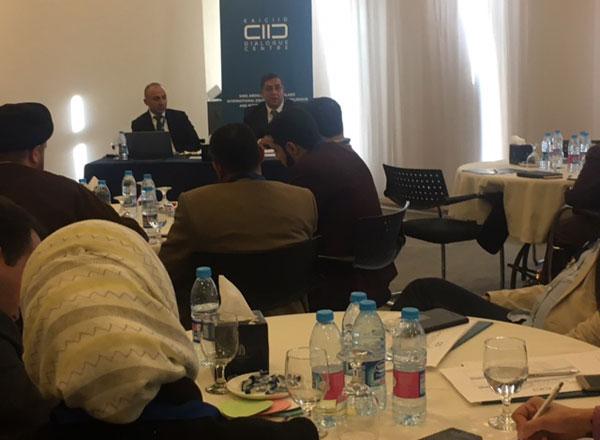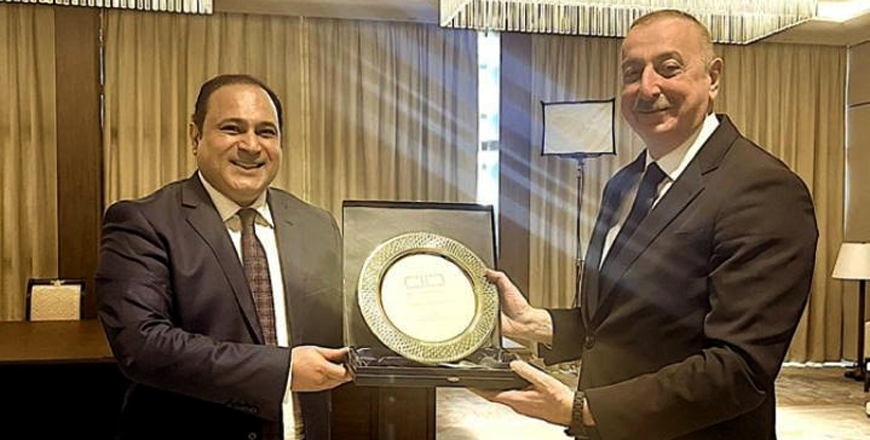You are here
Countering extremism should be a multifaceted approach — experts
By Rula Samain - Nov 01,2016 - Last updated at Nov 01,2016

Awqaf Minister Wael Arabiyat speaks during a panel discussion at the Interreligious Dialogue on Diversity, Tolerance and Social Cohesion in the Arab Region conference in Amman on Tuesday (Petra photo)
AMMAN — Jordan has been at the forefront of efforts to push interfaith dialogue forward and implement initiatives to counter extremism, a senior UNDP official said Tuesday.
UNDP Country Director Zena Ali Ahmad told The Jordan Times at the opening session of the Interreligious Dialogue on Diversity, Tolerance and Social Cohesion in the Arab Region conference in Amman that such topics are but “one segment of what we are trying to do”.
Ahmad said that in addition to security issues, the agency is working to address issues related to marginalisation, education, health and the rule of law.
She said that the UNDP is working with the government of Jordan on the inclusion of marginalised groups, and is collaborating with the Awqaf Ministry on the training of imams and women preachers.
In her speech at the conference, the UNDP director called for rejecting extremist narratives around the region, but stressed the need to first understand the causes and factors which led the Arab region into where it stands today.
Also speaking at the conference, Awqaf Minister Wael Arabiyat said pluralism is a universal norm and that humans cannot live alone.
To survive, humans need material wealth, spiritual welfare and security, Arabiyat added, stressing that these factors are the basis for positive dialogue.
He said that the civil state has existed since the beginning of Islam, citing Medina as an example of accepting the different components of society regardless of religion, race or colour.
The two-day event is organised by the UNDP and the King Abdullah Bin Abdulaziz International Centre for Interreligious and Intercultural Dialogue (KAICIID) and attended by Muslim and Christian religious experts and media professionals from 25 Middle Eastern countries.
Mohammad Abu Nimer, KAICIID senior adviser, told The Jordan Times on the sidelines of the event that it is a mistake to place the burden of fighting radicalism and extremism on one agency, adding that it is a multi faceted effort.
“In any effective response on the national or regional level, there needs to be collaboration among the different agencies... all have active roles in... responding to the problem,” he explained.
Abu Nimer added that another wrong approach is blaming Islam and its institutions for extremism.
“From my experience, Christian and Muslim religious agencies are still subject to political considerations and pressures in terms of what they say and do, and what they do not say and do not do. This is a structural issue,” he said.
“The absence of women engagement in religious institutions is another big challenge we need to face and tackle.”
Related Articles
AMMAN — In a quest to enhance conflict prevention and peacebuilding between individuals, an International Fellows Programme for the Arab wor
AMMAN — Senate President Faisal Fayez on Sunday called for unified messaging among Arab media to defend Arab causes and confront attempts to
BAKU — President Ilham Aliyev of the Republic of Azerbaijan received on Wednesday in Baku, Azerbaijan, Zuhair Al-Harthi, Secretary-General o


















